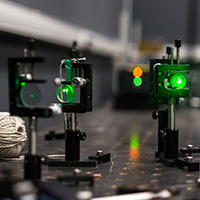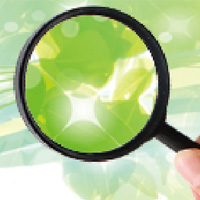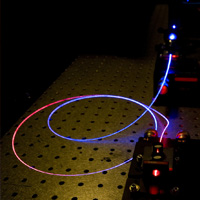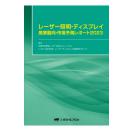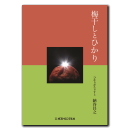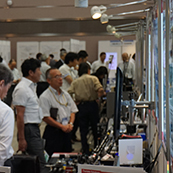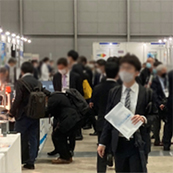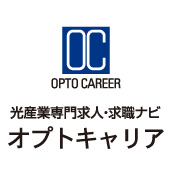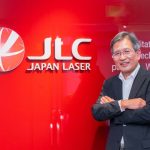We will organize the 1st International Symposium on Photonic Computing, in which the overview and the latest achievements of the project will be introduced. Additionally, we will invite distinguished professors from overseas and domestically, actively contributing to this field to speak about the latest topics. We look forward to your participation.
This Research Area calls for proposals as Publicly Offered Research in all aspects of the initiative ranging from Research Groups A, B, and C that excel in originality and novelty to meet the fundamental concept of this Research Area entitled Photonic computing highlighting ultimate nature of light. The interdisciplinary research of photonics and computing has been extensively studied recently, including the transformation to industry on optical hardware accelerators. Photonic computing research is entering a new era, expecting innovative fundamental research for future information processing infrastructure. The aim and role of the Publicly Offered Research of the Research Area are to contribute to building solid foundations of photonic computing as well as extending applications.
The Publicly Offered Research’s duration and budget are, however, limited. Therefore, the proposals are highly expected to excel in their originality and novelty while highlighting their unique perspectives, principles, or technologies involving optics and photonics for contributing to innovative computing. In particular, the proposals are expected to focus on one of the following perspectives of Research Groups in this Research Area. Research Group A03, entitled System Architecture to benefit from the ultimate nature of light, sheds light on architectural limitations that prevent the successful utilization of photonics for computing, which are related to the fields of computer sciences, application systems, and mathematical sciences, among others. Research Group B04, entitled Computing Mechanism to exploit ultimate nature of light, focuses on realizing novel computing mechanisms based on the unique physical attributes of photons. The relevant field of research includes information physics, information photonics, quantum sciences, and nonlinear systems. Research Group C03, entitled Device Fundamentals to benefit from the ultimate nature of light, encompasses devices and materials to uncover the potential of light for computing. The related field of research includes optical devices, electronic devices, nanotechnologies, and material sciences. In the meantime, all research proposals are expected to have discussions regarding their future applications, since this Research Area intends to contribute to future information processing and computing paradigms through optics and photonics. Note that this request does not mean that application development is mandatory. The Research Area asks all proposals to consider the relevance to applications and other related research.
The interdisciplinarity of this Research Area is particularly characteristic, which includes, but is not limited to, optical science, information science, computer science, electrical engineering, communications engineering, mathematical science, and material science, among others. The applications cover a variety of computing, information, and communications technologies, but other scenarios may be considered. Indeed, the extension, expansion, and deepening of the photonic computing research domains is one of the important aims of this Research Area. Cultivating and enriching the network of researchers and developing young researchers is additional value to be accomplished through Publicly Offered Research in the Research Area.
Program:
Day 1 (March 11)
13:00–15:00
Session 1: Opening
13:00–13:30
“Greeting and overview of the project,” Tetsuya Kawanishi, Head Investigator,
Waseda University
13:30–14:00
“Neuro-inspired photonic information processing and sensing,” Satoshi Sunada, Kanazawa University
14:00–14:30
“Photonic neural networks with synaptic and structural plasticity,” Wolfram Pernice, University of Münster [International Invited]
14:30–15:00
“Optoelectronic Accelerator Based on Integrated Nanophotonics,” Masaya Notomi, NTT Basic Research Laboratories, Tokyo Institute of Technology [Domestic Invited]
15:00–15:15
Break
15:15–17:15
Session 2: Physics and MechanismⅠ
15:15–15:45
“Reservoir computing and decision making for photonic artificial intelligence,”
Atsushi Uchida, Saitama University
15:45–16:15
“Photonic AI: Devices, Circuits, Systems,” Volker J. Sorger, University of Florida [International Invited]
16:15–16:45
“Parallel Photonic Tensor Processing on Hybrid Waveguide/Free-Space-Optics,” Mitsumasa Nakajima, NTT Device Technology Laboratories [Domestic Invited]
16:45–17:15
“Towards a Fusion of Ultrafast Silicon Analog Circuitry and Photonics,”
Akifumi Kasamatsu, National Institute of Information and Communications Technology
17:15–17:30
Break
17:30–19:30
Session 3: Poster Session with Reception (Free drink and light meal)
Day 2 (March 12)
10:00–11:30
Session 4: Architecture and MechanismⅠ
10:00–10:30
“Photonic Approximate Computing,” Michihiro Koibuchi, National Institute of Informatics
10:30–11:00
“Illuminating Computing Architectures with Photonics and Machine Learning,”
Avinash Karanth, Ohio University [International Invited]
11:00–11:30
“Applications of Laser Chaos Decision Maker to Wireless Communication Systems,” Mikio Hasegawa, Tokyo University of Science
11:30–13:00
Lunch
13:00–15:00
Session 5: Physics and MechanismⅡ
13:00–13:30
“Photonic spiking neural network with optical parametric oscillators,” Takahiro Inagaki, NTT Basic Research Laboratories [Domestic Invited]
13:30–14:00
“The major case and challenge for photonics AI remains: Scaling up,” Daniel Brunner, FEMTO-ST [International Invited]
14:00–14:30
“Scalable programmable photonic circuits for optical computing,” Takuo Tanemura,
The University of Tokyo [Domestic Invited]
14:30–15:00
“Precise lightwave modulation for photonic computing,” Tetsuya Kawanishi, Waseda University
15:00–15:15
Break
15:15–16:45
Session 6: Architecture and MechanismⅡ
15:15–15:45
“Photonic Reservoir Computing in Silicon Photonics: Applications and self-adapting systems,” Peter Bienstman, Gent University [International Invited]
15:45–16:15
“Hybrid Optoelectronic Computer System Architecture Exploration,” Satoshi Kawakami, Kyushu University
16:15–16:45
“Diversity of Optical Computing,” Jun Tanida, Osaka University [Domestic Invited]
16:45–16:55
Closing Remark, Michihiro Koibuchi
- 参加費:
- Free
- URL:
- https://www.photoniccomputing.jp/en/
お問合せ先:Photonic Computing Highlighting Ultimate Nature of Light
E-mail:photoniccomputing-group@g.ecc.u-tokyo.ac.jp


